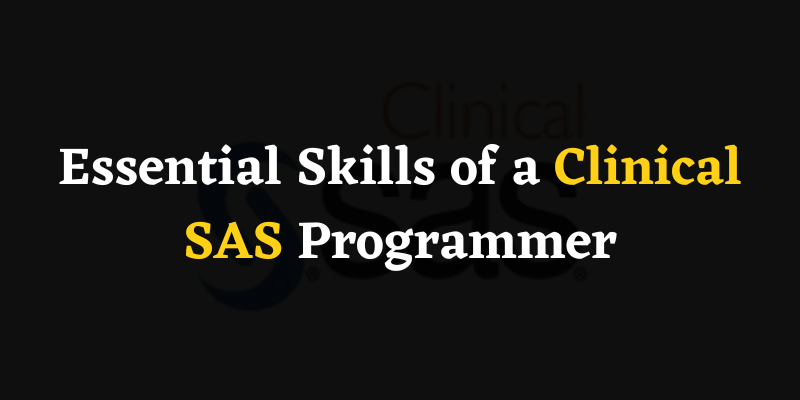Here, we will discuss the future scope of clinical SAS in the healthcare industry.
What is Clinical SAS?
SAS has become a well-known professional in recent years. It is broadly used in clinical research and trials. It is an important research tool that uses cutting-edge technology. Clinical SAS is designed to test new approaches to medical research. FITA Academy is the Best Clinical SAS Training Institute in Chennai to learn more about clinical SAS.
What is Clinical SAS Programmer?
Clinical statistical programmers monitor other programmers and analyze data sets based on their employer’s or client’s needs. They integrate data for clinical research reports and create data sets during clinical trials using SAS programming.
They also assist with quality control and auditing of all statistical programming deliverables and earn $37 per hour or $77,000 per year.
Essential Skills of a Clinical SAS Programmer:
Clinical Data Management:
Clinical Data Management (CDM) is an important stage in clinical research that generates high-quality, reliable, and statistically sound data from clinical trials. It contributes to a significant reduction in the time it takes from pharmaceutical research to marketing. CDM team members participate actively in all stages of clinical trials, from inception to completion.
Data Collection:
The CRF is available in both paper and electronic formats. It is used to collect data. The traditional method is to collect data responses on paper CRFs, which are translated to the database via in-house data entry.
Data Entry:
Data entry is carried out under the guidelines created in conjunction with the DMP. It is only applicable to paper CRFs retrieved from the sites. Double data entry is used, in which two operators enter the data separately.
FITA Academy’s Clinical SAS Online Training will be your career-establishing course.
Data Validation:
The method of testing the validity of data under protocol specifications is known as data validation. Edit check programs are written to identify discrepancies in entered data that are embedded in the database to secure data validity.
Medical Coding:
Medical coding helps classify reported medical terms on the CRF to standard dictionary terms, resulting in data consistency and avoiding unnecessary duplication.
Clinical Trials:
Clinical trials are scientific studies conducted to find better ways to prevent, screen for, diagnose, or treat disease.
CRF:
A Case Report Form (CRF) is used for the study. The collected data is stored in a database. The analysis results should be included in the study report to collect clinical trial data.
Conclusion:
As we discussed, the Essential Skills of a Clinical SAS Programmer. So, to have a profound understanding of Clinical SAS and trials, you can join Clinical SAS Training in Chennai and equip yourself with its functions and scopes.
